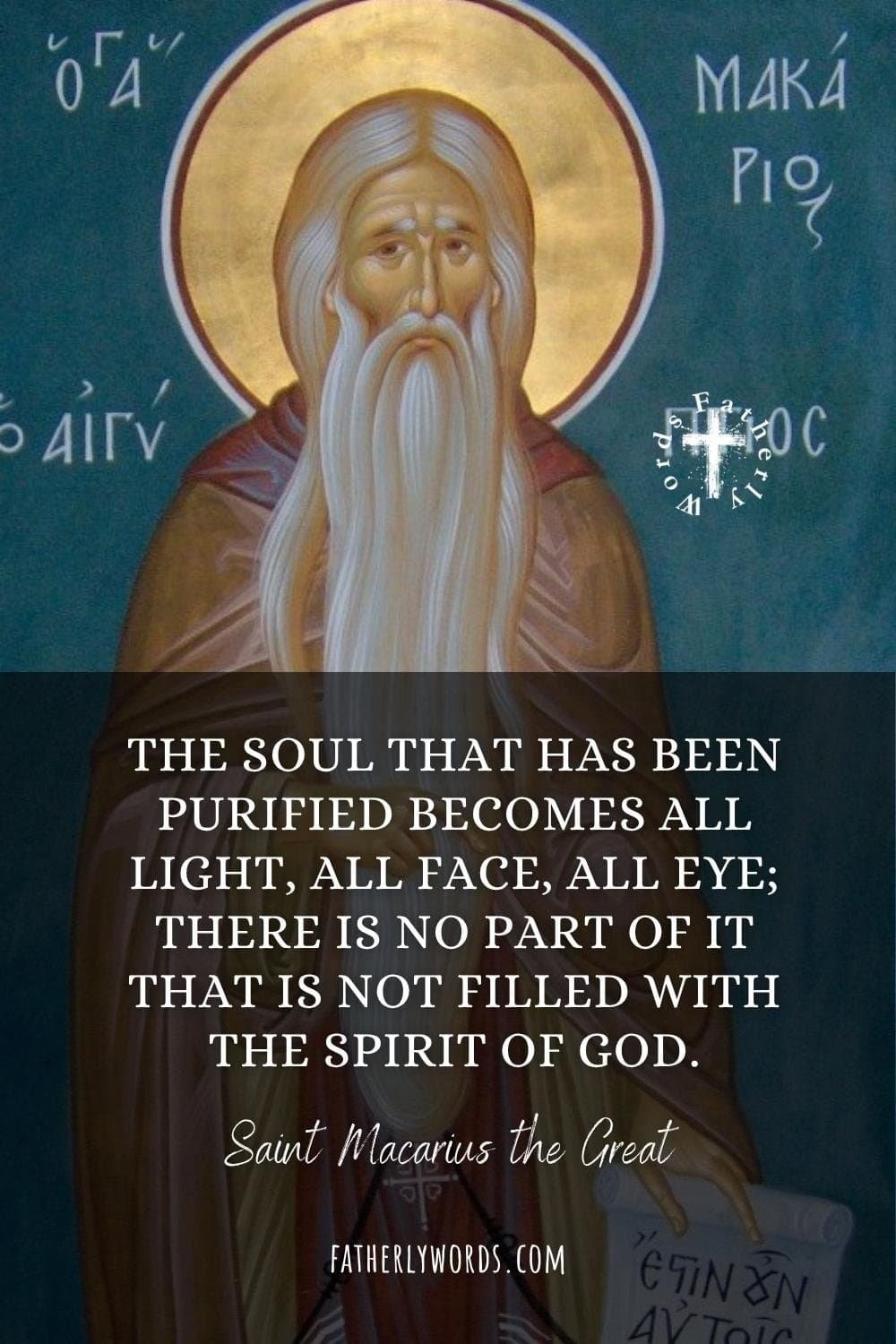In Orthodox Christianity, the spiritual father holds a sacred place in the life of every believer. He is not simply a teacher, counselor, or friend, but a guide on the path to salvation. He’s a physician of the soul who helps heal the wounds of sin through divine grace.
His role is to lead those entrusted to him toward repentance, humility, and union with Christ.
From the earliest centuries of Christianity, the faithful have sought guidance from those who possess both wisdom and spiritual experience.
The Apostles themselves served as the first spiritual fathers, instructing their disciples in the way of holiness.
This living tradition continues within the Church today, as each generation learns the life in Christ through obedience and spiritual counsel.
Saint Paul wrote:
“Though you have ten thousand instructors in Christ, yet have you not many fathers; for in Christ Jesus I have begotten you through the Gospel.”
1 Corinthians 4:15
The spiritual father is one who begets souls in Christ, not by power but by love, humility, and prayer.

The Nature of Spiritual Fatherhood
In Orthodox Christianity, spiritual fatherhood is not an earthly authority but a spiritual relationship founded in love and grace.
The true spiritual father does not impose his will but seeks to discern the will of God for his spiritual child. His task is to help the soul recognize the voice of Christ, not to replace it.
Saint Barsanuphius of Gaza wrote:
“The spiritual father is a physician who heals with the medicine of humility, patience, and prayer.”
This means that the guidance given by a true elder is not based on personal opinion or human wisdom, but on the discernment granted by the Holy Spirit. He listens deeply, prays for illumination, and speaks words that bring peace to the conscience.
The bond between spiritual father and child is not of domination but of mutual trust. The disciple approaches with obedience, not as a slave but as one who seeks healing.
The father, in turn, bears the burden of the soul entrusted to him with love and fear of God.
The Spiritual Father as Physician of the Soul
Sin, in Orthodox understanding, is not only transgression but sickness. It wounds the soul and distorts the image of God within man.
The spiritual father is therefore like a physician who applies the right medicine at the right time.
Christ said:
“It is not the healthy who need a doctor, but the sick. I have not come to call the righteous, but sinners.”
Mark 2:17
Confession is one of the chief moments when this healing takes place, but the father’s guidance extends far beyond the sacrament. Through continual spiritual direction, he helps the faithful discern the movements of the heart, exposing pride, despair, or hidden passions before they grow strong.
Saint John Climacus writes:
“Those who would learn obedience lay their own will before their guide as an offering, trusting that God will speak through him.”
This obedience is not blind submission but faith that God works through humility. The one who obeys learns to renounce self-love, and in doing so, becomes free.
The Discernment of the True Spiritual Father
Not every person who offers advice is a spiritual father. True spiritual fatherhood comes only from a life of repentance, prayer, and purification. A man cannot lead others to the light if he himself still lives in darkness.
Saint Symeon the New Theologian taught:
“He who has not received the Holy Spirit cannot be a guide for others, lest he lead them astray.”
A spiritual father is therefore one whose words bear fruit, whose presence brings peace, and whose humility reveals the grace of God. His authority is not institutional but spiritual.
The believer must seek such a guide with discernment and prayer. It is not necessary to find a wonderworker or a famous elder; sometimes the right guide is a simple, quiet soul who lives close to God.
The test of true guidance is whether it leads the heart to repentance, humility, and love for Christ.
How to Approach a Spiritual Father
The approach to a spiritual father must always be made with humility, sincerity, and openness. The faithful should come not to justify themselves but to reveal their heart truthfully. The goal is not to appear righteous but to become healed.
Psalm 50 teaches:
“A broken and a contrite heart, O God, Thou wilt not despise.”
Psalm 50:17, LXX
Before confession or counsel, one should pray for the grace to speak honestly and listen attentively. The spiritual father is not a judge but a co-sufferer who weeps for his spiritual children. His love reflects the compassion of Christ, who came not to condemn but to save.
Saint Silouan the Athonite said:
“The spiritual father bears the sins of his children in his own heart. Through love, he intercedes for them before God.”
This sacred bond requires trust and constancy. The spiritual life cannot grow through occasional or scattered encounters. Just as a tree needs consistent care to bear fruit, so the soul needs steady direction to mature in grace.

The Responsibility of the Believer
While the spiritual father carries great responsibility, the believer also bears his share.
Guidance is fruitful only when received with humility and patience. The one who constantly changes confessors or resists correction remains unstable in his path.
Saint John Cassian warned:
“He who seeks a guide but will not obey him is like a sick man who rejects the medicine prescribed for him.”
A true disciple listens carefully, prays over the counsel received, and applies it with faith.
Even if the advice seems simple, grace works through obedience.
The believer must also avoid overburdening the spiritual father with unnecessary details or demanding instant solutions. The purpose is not to seek comfort but salvation.
The Role of Prayer in the Relationship
Prayer is the foundation of the relationship between the spiritual father and the believer. Both pray for one another daily. The father asks God for wisdom; the child asks for strength to obey and discernment to remain humble.
Saint Seraphim of Sarov said:
“Acquire the spirit of peace, and thousands around you will be saved.”
When the father lives in peace, his prayer sanctifies his children.
When the children live in obedience and humility, their love strengthens their father. This communion of prayer becomes a small icon of the unity of the Church.
The Dangers of Independence
Modern life encourages independence, self-expression, and autonomy, yet in spiritual matters, these can become traps.
The person who relies solely on himself for guidance is like a sailor without a compass.
Proverbs 11:14 warns:
“Where there is no guidance, the people fall; but in the multitude of counselors there is safety.”
Orthodox Christianity does not reject personal responsibility but places it within obedience. The believer must act freely, but his freedom must be illumined by truth.
A soul without a guide often falls into self-deception, mistaking emotional feelings for grace or pride for spiritual strength.
Saint Theophan the Recluse taught:
“He who walks without a guide will soon lose the path, for the enemy knows how to disguise himself as an angel of light.”
To avoid this danger, every Christian should seek someone who can help him discern between true inspiration and illusion.
How to Find the Right Spiritual Father
Finding a spiritual father is not a matter of preference or convenience but of providence.
The believer should first pray sincerely that God will lead him to the right person.
Then he must look for one who lives according to the teachings of Orthodox Christianity, whose humility and love reveal the presence of the Holy Spirit.
Signs of a good spiritual father include gentleness, patience, and honesty. He does not flatter, but corrects with love. He does not control, but frees. He does not promise quick holiness, but teaches perseverance.
When one finds such a guide, it is best to remain with him and not to wander from one confessor to another. Spiritual growth comes through faithfulness.
Saint Paisios of Mount Athos said:
“A spiritual father is like a lighthouse. You do not need to run from one to another; you need only to follow the light where you are.”
Spiritual Fatherhood in the Modern World
In today’s world, the role of the spiritual father is often misunderstood. Some see him as a psychologist, others as a friend, or even as a moral authority. But his true mission is deeper—to lead souls to repentance and to Christ.
Modern culture values self-sufficiency and individualism, yet the Orthodox path calls for humility and dependence on divine grace.
The spiritual father reminds believers that salvation is not achieved by willpower but by surrender to God.
Saint Porphyrios of Kavsokalyvia said:
“Obedience is not slavery; it is freedom. When you obey in Christ, your heart becomes light and full of peace.”
This obedience is not to a man but to Christ, who speaks through His servants.
The faithful who understand this mystery find joy in spiritual guidance, for it protects them from delusion and keeps them close to the truth.
Modern Views Versus Orthodox Christianity
- The modern world values independence; Orthodox Christianity values obedience in love.
- The world trusts in human wisdom; Orthodox Christianity trusts in grace and prayer.
- The world treats spiritual life as therapy; Orthodox Christianity sees it as repentance.
- The world seeks comfort; Orthodox Christianity seeks healing.

- The world measures truth by feeling; Orthodox Christianity measures it by revelation.
- The world avoids correction; Orthodox Christianity welcomes it.
- The world seeks control; Orthodox Christianity seeks surrender to God.
- The world calls pride confidence; Orthodox Christianity calls humility strength.
- The world rejects spiritual authority; Orthodox Christianity honors it as divine gift.
The Blessings of Obedience and Trust
When the believer entrusts his soul to a spiritual father with faith, he discovers unexpected peace.
He no longer struggles alone but walks under guidance. The temptations that once seemed unbearable become lighter because they are shared.
Psalm 32 proclaims:
“Behold, the eye of the Lord is upon them that fear Him, upon them that hope in His mercy.”
Psalm 32:18, LXX
God’s mercy often comes through the words and prayers of a spiritual father. His advice may seem simple, yet it carries hidden grace.
Obedience to spiritual counsel is not loss of freedom but its sanctification. It trains the heart to listen to God’s will.
Those who practice this humility receive the grace of discernment and peace. They become teachable, gentle, and strong in the faith.
How Parents Can Explain This to Children
Parents can explain the role of a spiritual father to children in simple words:
“Just as we go to a doctor when our body is sick, we go to a spiritual father when our heart feels heavy or confused. He helps us see what is right, tells us how to fix it, and prays for us. God gives us these guides to help us grow closer to Him.”
Children can be encouraged to speak honestly in confession and to pray for their spiritual father every night.
They should learn that the relationship is built on trust and love, not fear. Through this understanding, they will grow up knowing that spiritual guidance is a gift from God.
Dive Deeper: